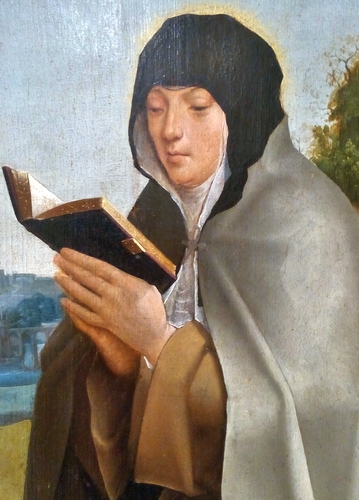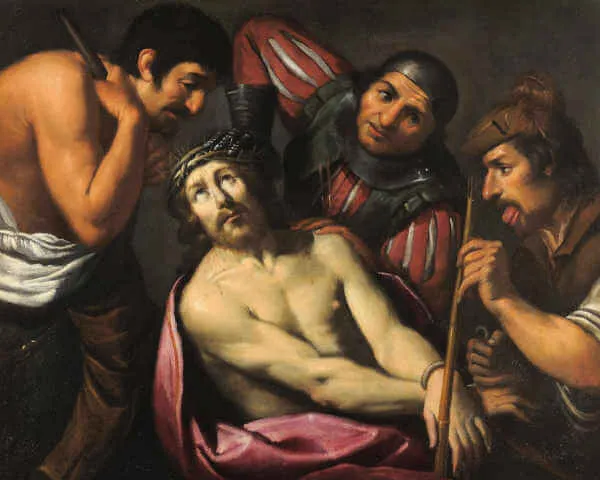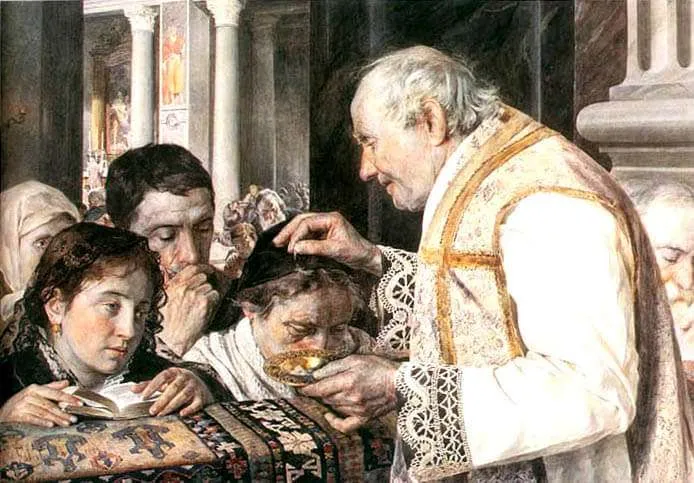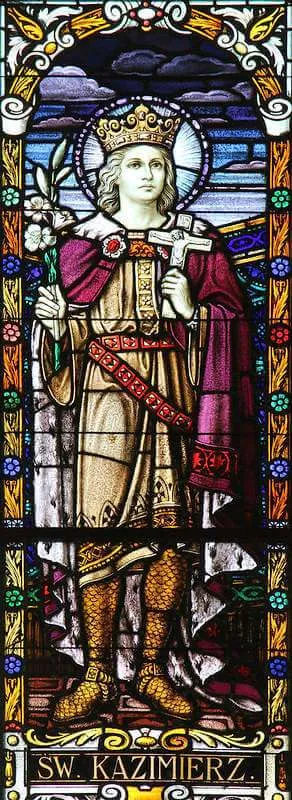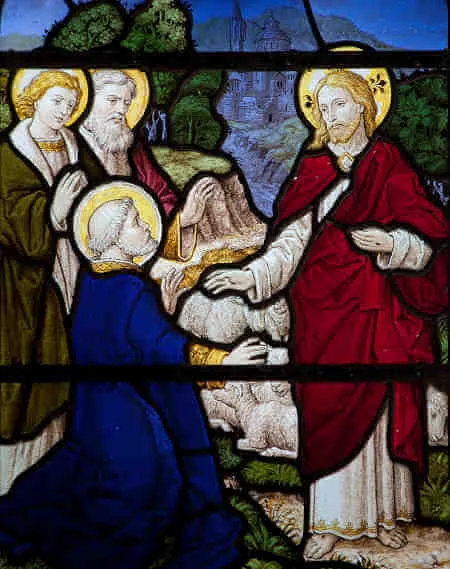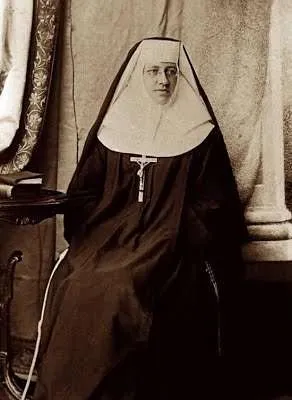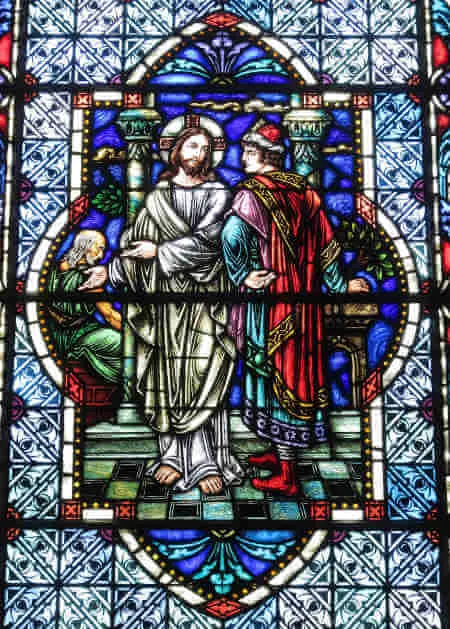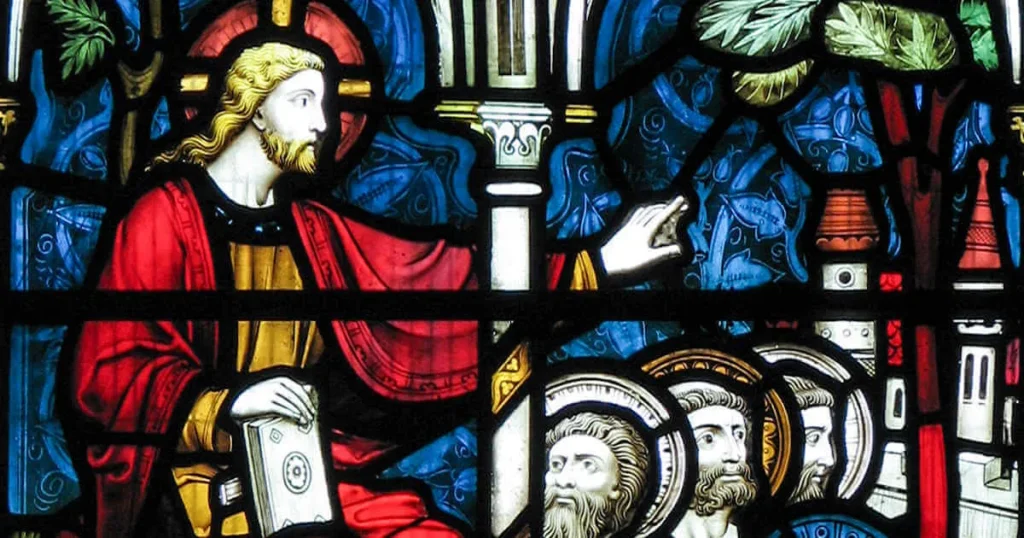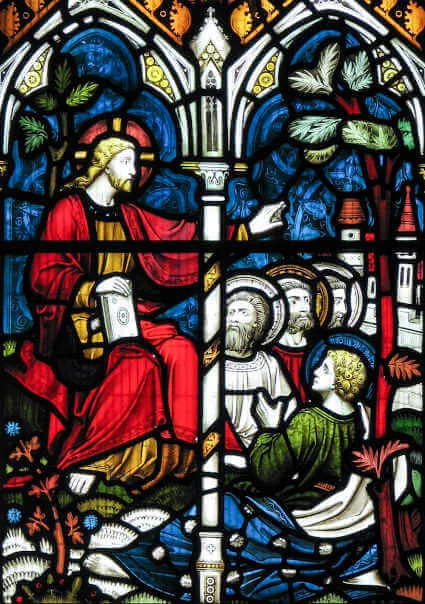Saint Colette
Profile
Colette was a carpenter‘s daughter whose parents were near 60 at her birth. She was orphaned at age 17, and left in the care of a Benedictine abbot. Her guardian wanted her to marry, but Colette was drawn to religious life. She initially tried to join the Beguines and Benedictines, but failed in her vocation. She was a Franciscan tertiary and a hermitess. On 17 September 1402, at age 21, she became an anchoress – walled into a cell whose only opening was a grilled window into a church.
Colette had visions in which Saint Francis of Assisi ordered her to restore the Rule of Saint Clare to its original severity. When she hesitated, she was struck blind for three days and mute for three more; she saw this as a sign to take action.
Colette tried to follow her mission by explaining it, but had no success. Realizing she needed more authority behind her words, she walked to Nice, France, barefoot and clothed in a habit of patches, to meet Peter de Luna, acknowledged by the French as the schismatic Pope Benedict XIII. He professed her a Poor Clare, and was so impressed that he made her superioress of all convents of Minoresses that she might reform or found, and a missioner to Franciscan friars and tertiaries.
She traveled from convent to convent, meeting opposition, abuse, slander, and was even accused of sorcery. Eventually, she made some progress, especially in Savoy, where her reform gained sympathizers and recruits. This reform passed to Burgundy in France, Flanders in Belgium and Spain.
Colette helped Saint Vincent Ferrer heal the papal schism. She founded seventeen convents; one branch of the Poor Clares is still known as the Colettines.
Colette was known for a deep devotion to Christ’s Passion with an appreciation and care for animals. She fasted every Friday, meditating on the Passion. After receiving Holy Communion, she would fall into ecstasies for hours. She foretold the date of her own death.
Born
- 13 January 1381 at Corbie, Picardy, France as Nicolette Boilet, named in honor of Saint Nicholas of Myra
Died
- 6 March 1447 at Ghent, Belgium of natural causes
- relics at the Monastère Sainte-Claire, Poligny, France
Beatified
- 1604 by Pope Clement VIII (grant of liturgical office)
- 23 January 1740 by Pope Clement XII (beatification)
Canonized
- 24 May 1807 by Pope Pius VII
Patronage
- against eye disorders
- against fever
- against headaches
- against infertility
- against the death of parents
- carpenters
- craftsmen
- Poor Clares
- servants
- Corbie, France
- Ghent, Belgium
Representation
- birds
- lamb
- woman being carried to heaven by an angel
- woman delivering a soul from purgatory
- Poor Clare nun holding a crucifix and a hook
- Poor Clare nun visited by Saint Anne, Saint Francis of Assisi, and/or Saint Clare of Assisi in a vision
- Poor Clare nun walking on a stream
Source: https://catholicsaints.info/saint-colette/


